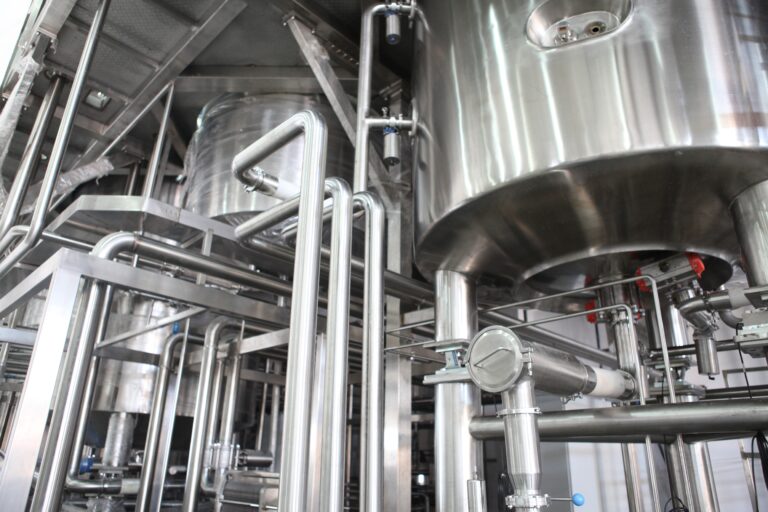Hygienic - Sanitary Fittings & Tube
In industries where hygiene and sanitation are of utmost importance, the use of proper fittings and tubing systems is crucial. Are you aware of the importance of industrial hygienic and sanitary fittings and tubing systems? Whether you work in the food and beverage, pharmaceutical, or chemical industry, understanding these systems is essential for maintaining cleanliness and preventing contamination.
What are Hygienic/Sanitary Fittings?
Hygienic fittings also known as sanitary fittings are specifically designed to ensure cleanliness and prevent the spread of bacteria and germs. These fittings are commonly used in bathrooms, kitchens, hospitals, and other facilities where hygiene is of utmost importance.
The purpose of hygienic fittings is to minimise the risk of contamination and maintain a clean and sanitary environment. They are often made from materials such as stainless steel or brass, which are resistant to corrosion and can be easily cleaned and disinfected. These fittings are designed to prevent the accumulation of harmful substances and to facilitate easy cleaning and maintenance. They may have features such as smooth surfaces, self-closing mechanisms, and sensor-activated controls to minimise contact and reduce the spread of germs.
In addition to their functional benefits, hygienic fittings also contribute to the overall aesthetics and design of a space. They are available in a wide range of styles and finishes to suit different preferences and design themes. Some fittings may also incorporate water-saving features to promote sustainability and reduce water consumption.
Where are Hygienic Fittings Used?
Sanitary fittings are a crucial component in various industrial applications to ensure the safe and hygienic transfer of fluids and gases in industries such as food and beverage, pharmaceuticals, biotechnology, and cosmetics.
In the food and beverage industry, sanitary fittings are used to maintain the integrity and quality of the products. They prevent contamination and ensure that the food and beverages remain safe for consumption. These fittings are also resistant to corrosion, making them suitable for use in the presence of acidic or corrosive substances.
In the pharmaceutical industry, sanitary fittings play a crucial role in maintaining the sterility of the production process. They prevent the entry of bacteria, viruses, and other contaminants, ensuring the safety and efficacy of medical products. These fittings are designed to be easily cleaned and sterilised, reducing the risk of cross-contamination.
In the biotechnology industry, sanitary fittings are used in the production of biopharmaceuticals, vaccines, and other biological products. They are essential for maintaining the purity and integrity of the products, as well as preventing the growth of microorganisms. These fittings are also resistant to high temperatures and pressures, ensuring the safe and efficient transfer of fluids.
In the cosmetics industry, sanitary fittings are used in the production of personal care products such as lotions, creams, and shampoos. They help maintain the cleanliness and hygiene of the manufacturing process, ensuring the safety and quality of the products. These fittings are also designed to be easily dismantled and cleaned, making them suitable for frequent product changes.

What are the Benefits of Hygienic Fittings?
First and foremost, they help to maintain cleanliness and prevent the spread of germs and bacteria. By using hygienic fittings, you can minimise the risk of contamination and promote good hygiene practices. Additionally, these fittings are designed to be easy to clean and maintain, reducing the amount of time and effort required for upkeep.
This not only saves you time and money but also ensures that your fittings remain in optimal condition for longer. Furthermore, hygienic fittings are often made from durable materials that are resistant to stains, scratches, and corrosion, ensuring their longevity.
Conclusion
In conclusion, investing in hygienic and sanitary fittings and tubes is not just a smart choice, but a necessary one. By prioritising cleanliness and safety you are taking a proactive step towards preventing the spread of diseases and ensuring the well-being of yourself and others. So, don’t compromise on hygiene – choose the best fittings and tubes for a healthier and safer environment.
Next up, what are sanitary valves?
